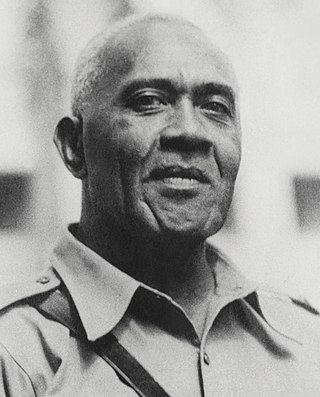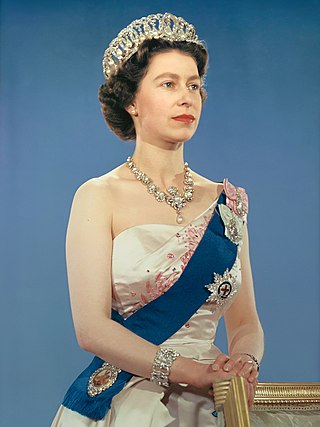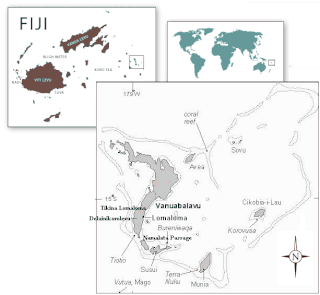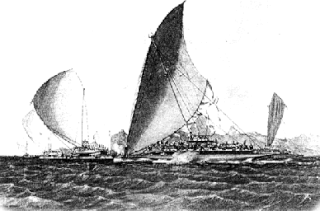
RatuSeru Epenisa Cakobau was a Fijian chief, monarch, and warlord (Vunivalu) who united part of Fiji's warring tribes under his leadership, establishing a united Fijian kingdom. He was born on Natauloa, Nairai Island in Lomaiviti but spent his youth on Vanuaso, Gau, Lomaiviti, later returning to Bau to re-establish his Father's Ratu Tanoa Visawaqa reign. Ratu Epenisa Seru Visawaqa was given the name "Cakobau" meaning destroyer of Bau, in reference to his grandfathers' (Nailatikau) effort to first claim the tile from the people of Butoni and Lovoni, returned with most of his warriors from Vanuaso, Gau, Lomaiviti to coup the leadership in Bau then and later takeover his father's title; known after his father as the 6th "Vunivalu" or Warlord of Bau.

RatuSir Josefa Lalabalavu Vanayaliyali Sukuna was a Fijian chief, scholar, soldier, and statesman. He is regarded as the forerunner of the post-independence leadership of Fiji. He did more than anybody to lay the groundwork for self-government by fostering the development of modern institutions in Fiji, and although he died a dozen years before independence from the United Kingdom was achieved in 1970, his vision set the course that Fiji was to follow in the years to come.
Ratu is an Austronesian title used by male Fijians of chiefly rank. An equivalent title, adi, is used by females of chiefly rank. In the Malay language, the title ratu is also the traditional honorific title to refer to the ruling king or queen in Javanese culture. Thus in Java, a royal palace is called "keraton", constructed from the circumfix ke- -an and Ratu, to describe the residence of the ratu.
The House of Chiefs in Fiji consists of the Fijian nobility, composed of about seventy chiefs of various ranks, majority of which are related. It is not a formal political body and is not the same as the former Great Council of Chiefs, which was a political body with a prescribed constitutional role, although the membership of the two bodies did overlap to a great extent.

Kubuna is one of the three confederacies that make up Fiji's House of Chiefs, to which all of Fiji's chiefs belong.

ʻEnele Maʻafuʻotuʻitonga, commonly known as Maʻafu, was a Pacific islander who held important titles in two countries in the Pacific. He was a traditional Tongan Prince and a Fijian chief nominated and installed by the Tovata chiefs of Lakeba and Vanua Balavu as 'Tui Lau' in 1869. This title was ratified by a wider council of Fijian chiefs and subsequently formalised under British colonial administration. In 1847, Maʻafu went to Fiji in an expedition to Vanua Balavu to investigate the killing of a preacher.

Turaga na Vunivalu na Tui Kaba, shortened as Vunivalu, is the Paramount Chief of the Kubuna Confederacy of the island of Bau in Fiji. Loosely translated the title means Warlord of Bau or "Root of War". The succession to the title does not follow primogeniture, but the candidate must be a high-ranking member of the Tui Kaba clan.

Bau is a small island in Fiji, off the east coast of the main island of Viti Levu. Bau rose to prominence in the mid-1800s and became Fiji's dominant power; until its cession to Britain, it has maintained its influence in politics and leadership right through to modern Fiji. Due to its sacred nature, foreigners have to apply for a permit to visit.

Ātua is an ancient political district of Samoa, consisting of most of the eastern section of Upolu and the island Tutuila. Within Samoa's traditional polity, Ātua is ruled by the Tui Ātua together with the group of six senior orators of Lufilufi and 13 senior matai from throughout Ātua, comprising the Fale Ātua. The fono (meeting) of Atua's rulers takes place in Lufilufi on the great malae of Lalogafu'afu'a.

The monarchy of Fiji arose in the 19th century, when native ruler Seru Epenisa Cakobau consolidated control of the Fijian Islands in 1871 and declared himself king, or paramount chief, of Fiji. Three years later, he voluntarily ceded sovereignty of the islands to Britain, making Fiji a crown colony within the British Empire.
Sau Mai Kedekede now more commonly referred to as Sau ni Vanua ko Lau is one of the preeminent titles held by the Paramount Chief of the Lau Islands in Fiji.

Turaga na Rasau is a traditional Fijian chiefly title of the Lau Islands. Prior to Fiji's colonial days, Fiji had many different Vanua with their own Paramount Chieftain which exercised no authority over the other; a saying from the island of Kadavu aptly summarises it "Nomu Turaga o sega na noqu Turaga" or "Your Chief is not my Chief" also the people of Beqa Island were of a similar opinion saying "Qali Cuva Ki Lagi" or "Subject only to heaven" and would bow to no outside Chieftain, but at the turn of the 20th century aspects of the traditional social structure remained, but for administrative purposes three main Matanitu were solidified and formed as they were the dominant consolidated powers at the time being that of Kubuna, Burebasaga and Tovata. With regard to the Rasau while its traditional origins were in Kubuna on Bau the titles traditional authority in modern Fiji is now in Tovata, Lau in particular Lomaloma Tikina on the Island of Vanua Balavu.

The Lasakau Sea Warriors were a 19th-century warrior sub-culture in the pre-colonial state of Bau, in Fiji. The sea warriors were instrumental in spreading Bau's political power throughout the South Pacific archipelagic islands. The rise of the eminent islet of Bau amongst other embryonic states was due mainly to the projection of sea power through its naval forces. Bauan chief Ratu Loaloadravu Tubuanakoro was praised by French Captain Dumont D'Urville in May 1827 for his geographic knowledge of the Fijian archipelago signifying Bau's naval influence. More far-ranging than Bau's land warriors led by the Vusaradave clan, the Lasakau clan became the leading proponents of war and tribute for the emerging island kingdom. They became known as the Bai kei Bau or 'War fence of Bau'. Sahlins made the crucial observation that," The kings of Bau based their rule not on native cultivators but on native sailors and fishers-which is to say in Fijian categories, as in political strategies, not on the land but on the sea". This was the great political transformation that catapulted Bau to power over other pre-colonial kingdoms.
Kapaiwai Tuimacilai Mara, chiefly seafarer, and descendant of the Vunivalu of Bau.

The title Tui Manuʻa was the title of the ruler or paramount chief of the Manuʻa Islands in present-day American Samoa.
Bau is the main village on Bau Island, Fiji. Once integral to the power and economy of the chiefly village, the villages of Lasakau and Soso are also located on the twenty-two acre island which became the centre of traditional power throughout the Fiji Islands in the nineteenth century.

Verata is a tikina in Fiji's Tailevu Province. It is made up of several sub-districts or Tikina makawa, namely: Verata, Namalata, Tai, Vugalei, and Taivugalei.
Ratu Jione Atonio Rabici "Tom" Doviverata was a Bau chief and medical doctor and administrator in colonial Fiji.
In Fiji, Turaga na Roko Tui Bau is a vassal chief of the Vunivalu of Bau. From his seat at the residence of Naicobocobo, the Roko Tui Bau rules the Vusaratu chiefs and has relationships with the Roko Tui Dreketi, Ratu Mai Verata, Roko Tui Namata, Roko Tui Veikau, Tui Vuya and other members of Fiji's House of Chiefs.

Viwa Island, Yasawa is located approximately 70 km northwest of Denarau situated in the Yasawa Islands of Fiji.











